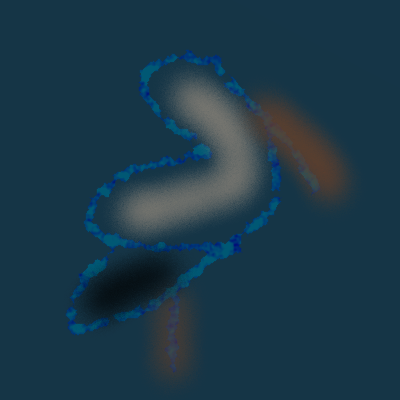結果
| 問題 | No.1681 +-* |
| コンテスト | |
| ユーザー |
 Strorkis Strorkis
|
| 提出日時 | 2021-09-18 17:15:18 |
| 言語 | Rust (1.93.0 + proconio + num + itertools) |
| 結果 |
AC
|
| 実行時間 | 37 ms / 2,000 ms |
| コード長 | 4,854 bytes |
| 記録 | |
| コンパイル時間 | 12,399 ms |
| コンパイル使用メモリ | 386,968 KB |
| 実行使用メモリ | 6,944 KB |
| 最終ジャッジ日時 | 2024-06-30 14:49:27 |
| 合計ジャッジ時間 | 14,839 ms |
|
ジャッジサーバーID (参考情報) |
judge3 / judge4 |
(要ログイン)
| ファイルパターン | 結果 |
|---|---|
| sample | AC * 2 |
| other | AC * 18 |
ソースコード
pub mod io {
use std::io::{BufRead, ErrorKind};
pub fn scan<R: BufRead>(r: &mut R) -> Vec<u8> {
let mut res = Vec::new();
loop {
let buf = match r.fill_buf() {
Ok(buf) => buf,
Err(e) if e.kind() == ErrorKind::Interrupted => continue,
Err(e) => panic!("{}", e),
};
let (done, used, buf) = {
match buf.iter().position(u8::is_ascii_whitespace) {
Some(i) => (i > 0 || res.len() > 0, i + 1, &buf[..i]),
None => (buf.is_empty(), buf.len(), buf),
}
};
res.extend_from_slice(buf);
r.consume(used);
if done { return res; }
}
}
#[macro_export]
macro_rules! scan {
($r:expr, [$t:tt; $n:expr]) => {
(0..$n).map(|_| scan!($r, $t)).collect::<Vec<_>>()
};
($r:expr, [$t:tt]) => {
scan!($r, [$t; scan!($r, usize)])
};
($r:expr, ($($t:tt),*)) => {
($(scan!($r, $t)),*)
};
($r:expr, Usize1) => {
scan!($r, usize) - 1
};
($r:expr, Bytes) => {
io::scan($r)
};
($r:expr, String) => {
String::from_utf8(scan!($r, Bytes)).unwrap()
};
($r:expr, $t:ty) => {
scan!($r, String).parse::<$t>().unwrap()
};
}
#[macro_export]
macro_rules! input {
($r:expr, $($($v:ident)* : $t:tt),* $(,)?) => {
$(let $($v)* = scan!($r, $t);)*
};
}
}
pub mod mod_int {
use std::fmt;
use std::ops::*;
#[derive(Clone, Copy, Debug)]
pub struct ModInt(u64);
impl ModInt {
const MOD: u64 = 1_000_000_007;
pub fn new(mut x: u64) -> Self {
if x >= Self::MOD {
x %= Self::MOD;
}
Self(x)
}
pub fn zero() -> Self {
Self(0)
}
pub fn one() -> Self {
Self(1)
}
}
impl From<usize> for ModInt {
fn from(x: usize) -> Self {
Self::new(x as u64)
}
}
impl From<i64> for ModInt {
fn from(mut x: i64) -> Self {
let m = Self::MOD as i64;
if x.abs() >= m {
x %= m;
}
if x < 0 {
x += m
}
Self::new(x as u64)
}
}
impl Add for ModInt {
type Output = Self;
fn add(self, other: Self) -> Self {
let mut x = self.0 + other.0;
if x >= Self::MOD {
x -= Self::MOD;
}
Self(x)
}
}
impl AddAssign for ModInt {
fn add_assign(&mut self, other: Self) {
*self = *self + other;
}
}
impl Sub for ModInt {
type Output = Self;
fn sub(mut self, other: Self) -> Self {
if self.0 < other.0 {
self.0 += Self::MOD;
}
Self(self.0 - other.0)
}
}
impl SubAssign for ModInt {
fn sub_assign(&mut self, other: Self) {
*self = *self - other;
}
}
impl Mul for ModInt {
type Output = Self;
fn mul(self, other: Self) -> Self {
Self::new(self.0 * other.0)
}
}
impl MulAssign for ModInt {
fn mul_assign(&mut self, other: Self) {
*self = *self * other;
}
}
impl fmt::Display for ModInt {
fn fmt(&self, f: &mut fmt::Formatter<'_>) -> fmt::Result {
write!(f, "{}", self.0)
}
}
impl ModInt {
pub fn pow(mut self, mut n: u64) -> Self {
let mut res = Self::one();
while n > 0 {
if n & 1 == 1 {
res *= self;
}
self *= self;
n >>= 1;
}
res
}
pub fn inv(self) -> Self {
self.pow(Self::MOD - 2)
}
}
}
use mod_int::ModInt;
fn run<R: std::io::BufRead, W: std::io::Write>(reader: &mut R, writer: &mut W) {
input! {
reader,
n: usize,
a: [u64; n],
}
let mut ans = ModInt::zero();
let mut prod = ModInt::one();
for (i, a) in a.into_iter().enumerate() {
prod = prod * ModInt::new(a);
if i + 1 < n {
ans += prod * ModInt::new(2) * ModInt::new(3).pow(n.saturating_sub(i + 2) as u64);
} else {
ans += prod;
}
}
writeln!(writer, "{}", ans).ok();
}
fn main() {
let (stdin, stdout) = (std::io::stdin(), std::io::stdout());
let ref mut reader = std::io::BufReader::new(stdin.lock());
let ref mut writer = std::io::BufWriter::new(stdout.lock());
run(reader, writer);
}
